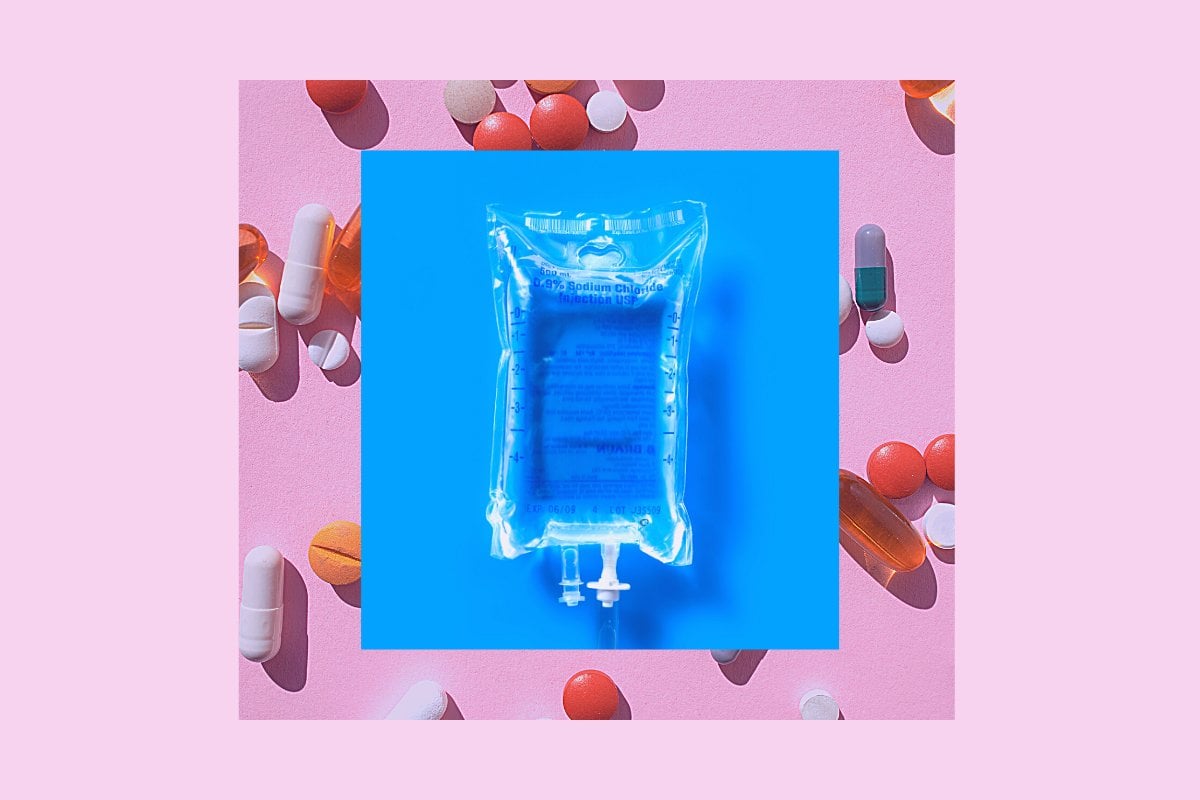
Hand sanitiser. Masks. Working from home.
In the wake of the pandemic, there's never been a greater focus on our health - the last two years have forced it on us.
Whether that's because of contracting COVID, catching the common cold or simply becoming rundown, taking care of our immune systems has become a big part of our everyday lives.
For this reason, many are looking to alternative methods that boast health benefits and don't require a visit to the doctor or a prescription.
And now, as we stare down three months of winter and flu season kicks into gear, it makes sense we'd be looking to arm ourselves against unnecessary illnesses.
Watch: Love a good myth bust? Here's a bunch of common health myths debunked. Post continues below.
Which brings us to two wellness treatments that have surged in popularity in recent times: IV vitamin drips and personalised supplements (you know, those little packs you buy online that are designed just for you?). And it's no surprise - both claim to strengthen the immune system and aid various health problems.
But do either actually work? Or is it just good marketing, convincing us to spend more money on things we don't need? Here's what three experts say.

